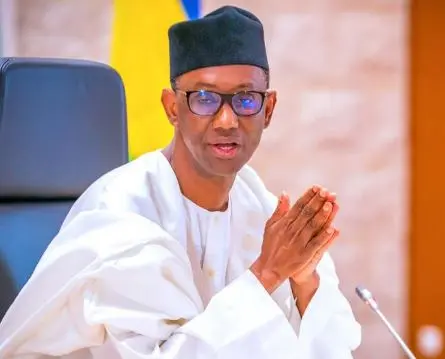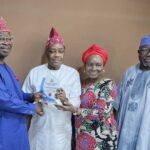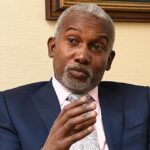At the wake of the impasse over the recent coup in Niger Republic, Nigeria, unknown to many, entered into a new era of conflict management and proactive security architecture bound to be beneficial to the entire Africa continent.
As at the time President Bola Ahmed Tinubu took over as chairman of the ECOWAS regional body, no less than five African countries including some in the region were in various forms of serious conflicts of mind-boggling humanitarian proportions.
The military putsch in Niger, at the time President Tinubu was about settling down as ECOWAS leader, only further threatened to broaden and escalate the scope of the conflicts.
As ECOWAS moved to restore the democratically elected government of that country against the insistence by the military junta to hold on to power, it seemed a confrontation between the regional body and the junta was inevitable.
While it was in order to discourage forceful take over of power in West Africa, the consequences of engaging the junta in an all-out battle which would have put the civil but hapless populace in danger was there for all to see.
Countering organised crimes: Ribadu, IGP, EFCC chair, others to speak at symposium
Diphtheria: FG vaccinates over 4.9m children as cases hit 9,478
To avert this scenario which would have had devastating consequences on the continent, especially Nigeria which shares borders with Niger, something urgent and decisive had to be done and President Tinubu was able to swiftly handle the matter to the benefit of the people in the sub region.
It was this intervention that saved the West African country from degenerating into a theatre of war unlike what is happening in Gaza at the moment where the world is absorbed in the task of finding solutions to the Israeli/Palestine conflict.
Rather than allow West Africa degenerate into violence however, measures were put in place to ensure continuous peace while efforts are on to make sure that crises of catastrophic consequences on the population are permanently put at bay.
ECOWAS, led by Nigeria, couldn’t have been able to handle the Niger quagmire so efficiently to avoid a blood bath unless there have been deliberate efforts and interventions by some who foresaw the likely consequences of allowing such and moved ahead to avert the disaster.
The first is President Bola Ahmed Tinubu who used his experience as a leader to ensure that the right things are done to avoid a diplomatic uproar.
His deployment of tact and wisdom changed the language of dialogue from sabre rattling and tough talks to round table jaw jaw diplomacy.
Again, the President must be commended for making the right choice of a National Security Adviser as this helped assess the imminent dangers for him to be able to work out the best strategy for handling the situation.
As National Security Adviser to the President, Malam Nuhu Ribadu quickly put his experience to bear to analyse the situation and was able to advice the president accordingly which prevented the situation from degenerating.
Ribadu meticulously midwifed dialogue that resulted in the mediation of the Gen Abdulsalam and Sultan of Sokoto’s diplomatic shuttle to Niamey.
The ECOWAS parliament led by Ahmed Idris Wase, swiftly mobilized the needed legislative muscle by rallying his colleagues in the sub region towards a peaceful resolution.
These men who have put their offices to good use to sustain peace and avert crises in the sub region have rich backgrounds in security and peace management.
The silent intervention of Ribadu and Wase has seen to the deployment of non-kinetic strategies that averted the imminent war both in Niger and with its neighbours.
For a start, Ribadu’s unblemished records of achievements has always attracted international attention, resulting in the withdrawal of the US Treasury FINCEN Advisory on Nigeria, delisting it from the FATF list of Non-Cooperative Countries and Territories, and its admission into the prestigious Egmont Group.
Hon. Wase on the other hand, using his office as the then deputy speaker of the House of Representatives, was key in supporting the then Governor of Plateau State, Simon Lalong, to achieve his mantra of peaceful coexistence and national integration.
So, both men are not new to the tasks of managing and resolving conflicts.
While the NSA mobilized his international network and policing background, the former Deputy Speaker who is the chairman of ECOWAS parliament, deployed concrete legislative networks to create the much needed synergy resulting in creating a roadmap to peaceful resolution to the Nigerien crisis that would have resulted in human catastrophe in the African continent among subregional neighbours.
The efforts of the duo have saved both Niger and Nigeria – the most populous African nation, from war and the consequent humanitarian consequences that would have followed.
This must be appreciated by advocates of world peace as this, again, highlights the inherent ingenuity of the President Bola Ahmed Tinubu to navigate the slippery landscape and resolve contradictions for national integration.
This is a shiny example of statecraft that has not been seen in many years which must be sustained.
As the President is trying very hard to revamp the nation’s economy, this is hardly the time to allow any form of distraction owing to one crisis or the other.
Moreover, the African continent which has been bogged by disturbing conflicts in many countries like Burkina Faso, Guinea, Sudan, Mali and others can do without an exacerbation in human conflicts.
The measures put in place have worked effectively to ensure a peaceful continent and should be counted as a plus for the current administration.
While the international community searches for the solutions to the Israeli/Palestine debacle, President Ahmed Tinubu has again acted as a leader with vision by replicating a module of peaceful coexistence that can be replicated on the international fora for world peace.
Dati, a former Chief of Staff to the DG of the defunct PCC, contributed this piece from Abuja.

 Join Daily Trust WhatsApp Community For Quick Access To News and Happenings Around You.
Join Daily Trust WhatsApp Community For Quick Access To News and Happenings Around You.


